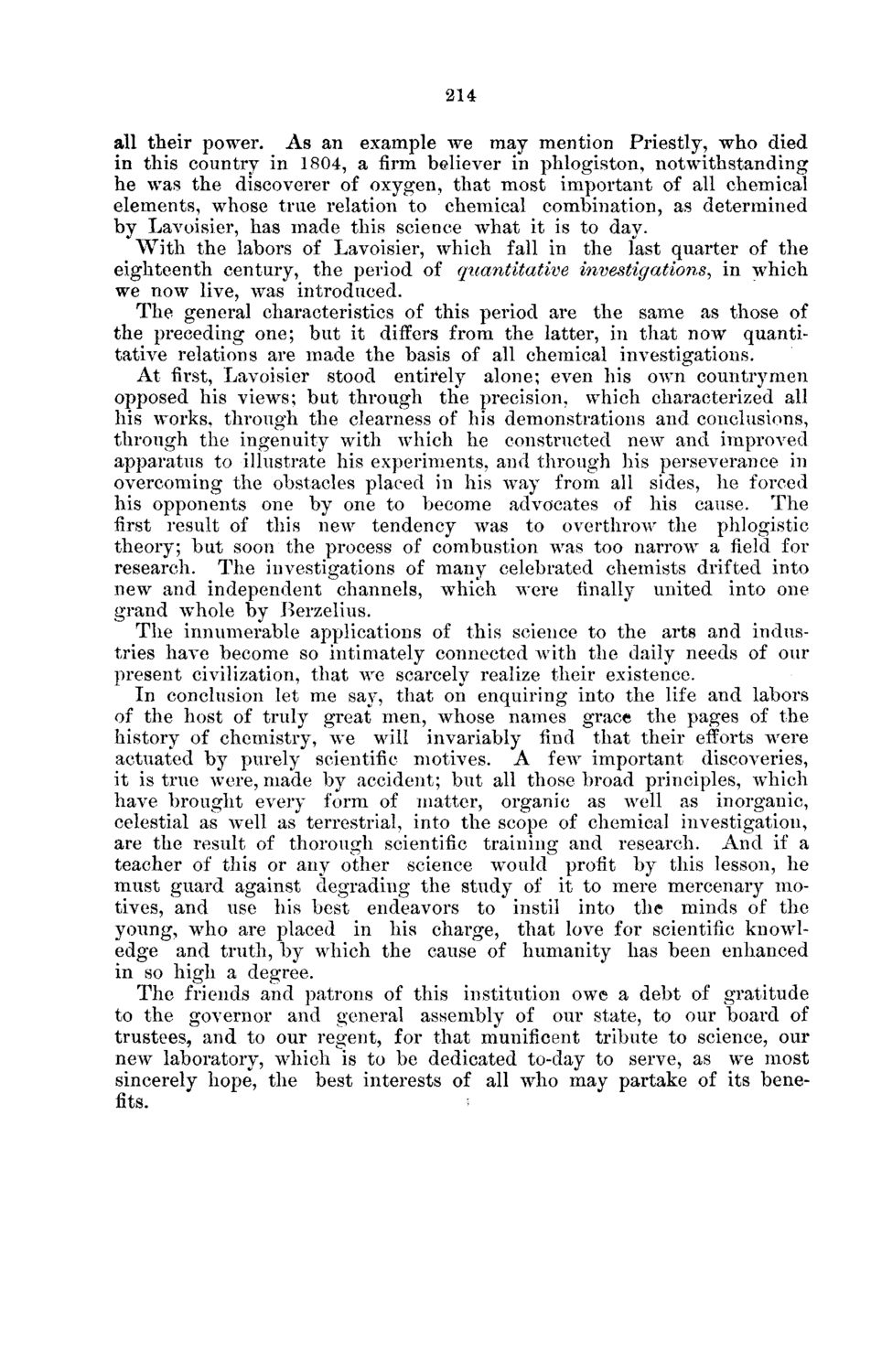| |
| |
Caption: Board of Trustees Minutes - 1878
This is a reduced-resolution page image for fast online browsing.

EXTRACTED TEXT FROM PAGE:
214 all their power. As an example we may mention Priestly, who died in this country in 1804, a firm believer in phlogiston, notwithstanding he was the discoverer of oxygen, that most important of all chemical elements, whose true relation to chemical combination, as determined by Lavoisier, has made this science what it is to day. W i t h the labors of Lavoisier, which fall in the last quarter of the eighteenth century, the period of quantitative investigations, in which we now live, was introduced. The general characteristics of this period are the same as those of the preceding one; but it differs from the latter, in t h a t now quantitative relations are made the basis of all chemical investigations. At first, Lavoisier stood entirely alone; even his own countrymen opposed his views; but through the precision, which characterized all his works, through the clearness of his demonstrations and conclusions, through the ingenuity with which he constructed new and improved apparatus to illustrate his experiments, and through his perseverance in overcoming the obstacles placed in his way from all sides, he forced his opponents one by one to become advocates of his cause. T h e first result of this new tendency was to overthrow the phlogistic theory; but soon the process of combustion was too narrow a field for research. The investigations of many celebrated chemists drifted into new and independent channels, which were finally united into one grand whole by Berzelius. The innumerable applications of this science to the arts and industries have become so intimately connected with the daily needs of our present civilization, that we scarcely realize their existence. In conclusion let me say, that on enquiring into the life and labors of the host of truly great men, whose names grace the pages of the history of chemistry, we will invariably find that their efforts were actuated by purely scientific motives. A few important discoveries, it is true were, made by accident; but all those broad principles, which have brought every form of matter, organic as well as inorganic, celestial as well as terrestrial, into the scope of chemical investigation, are the result of thorough scientific training and research. And if a teacher of this or any other science would profit by this lesson, he must guard against degrading the study of it to mere mercenary motives, and use his best endeavors to instil into the minds of the young, who are placed in his charge, that love for scientific knowledge and truth, by which the cause of humanity has been enhanced in so high a degree. The friends and patrons of this institution owe a debt of gratitude to the governor and general assembly of our state, to our board of trustees, and to our regent, for that munificent tribute to science, our new laboratory, which is to be dedicated to-day to serve, as we most sincerely hope, the best interests of all who may partake of its benefits.
| |